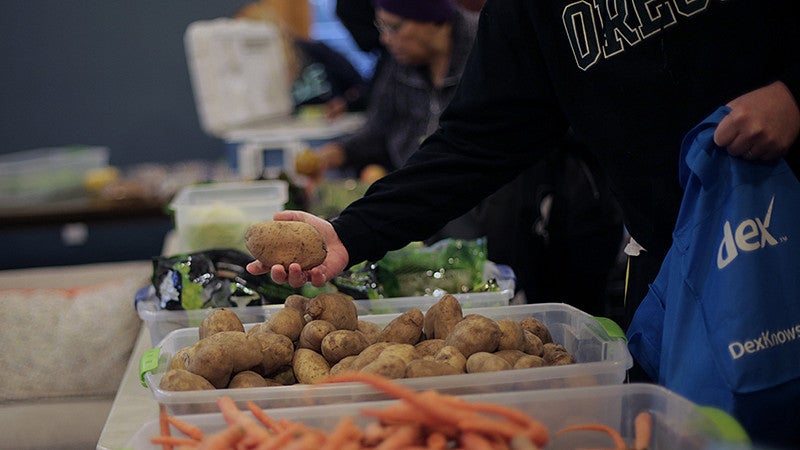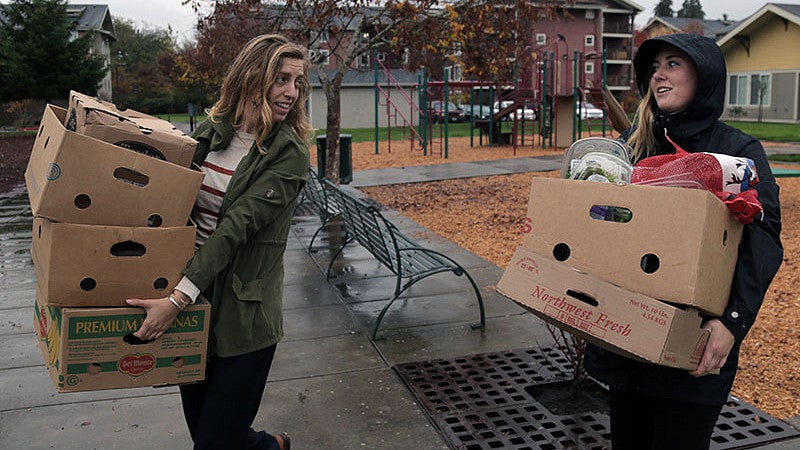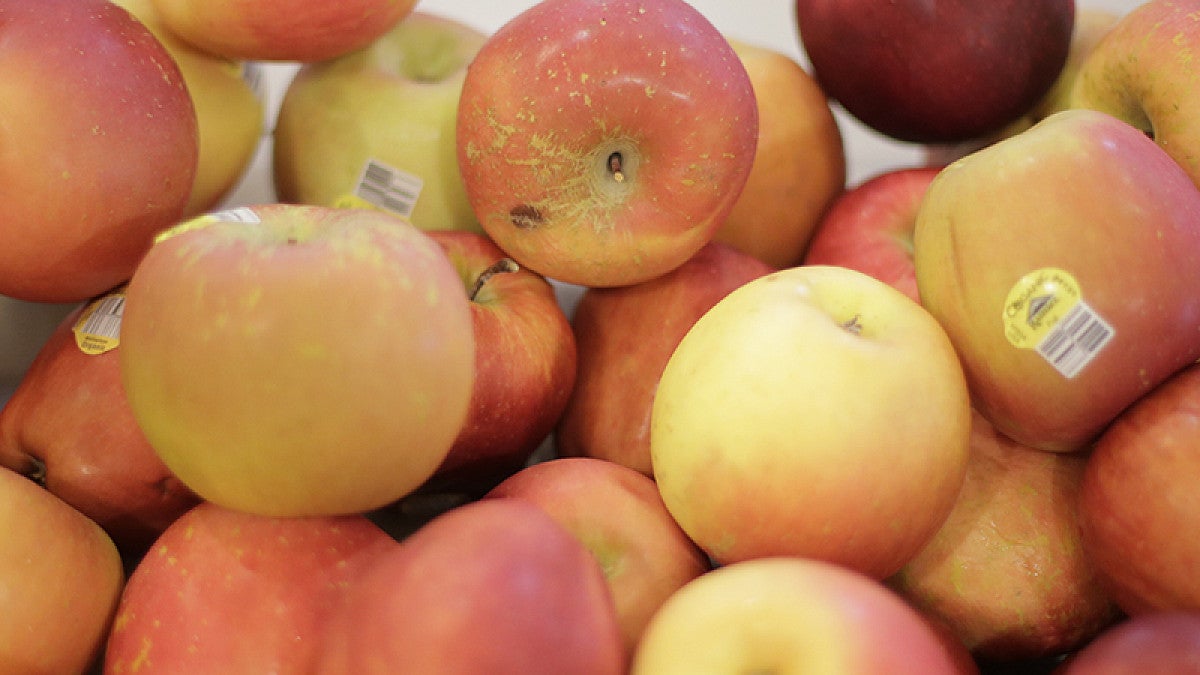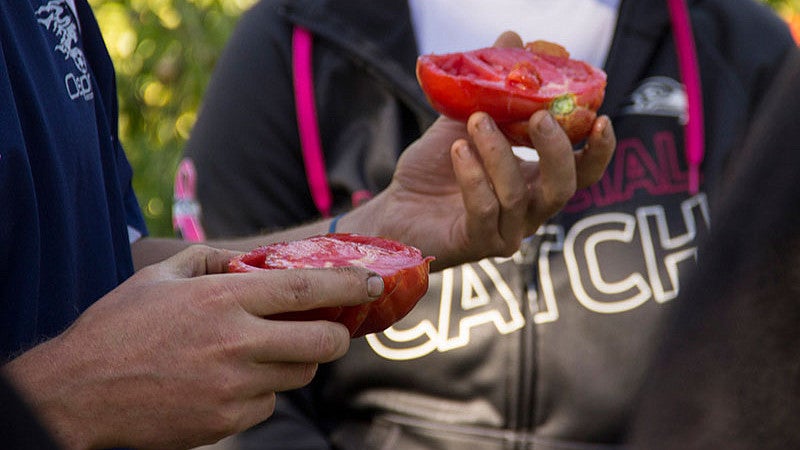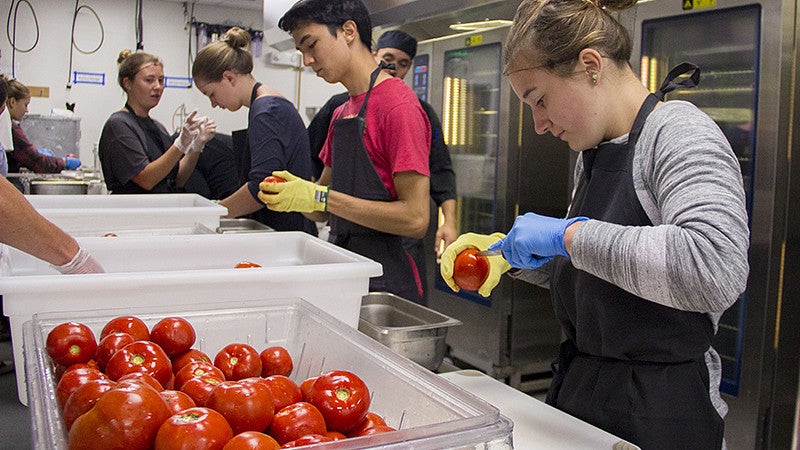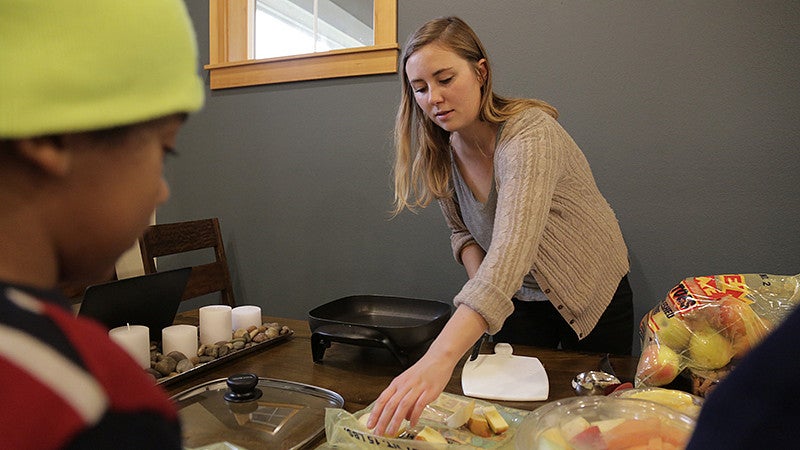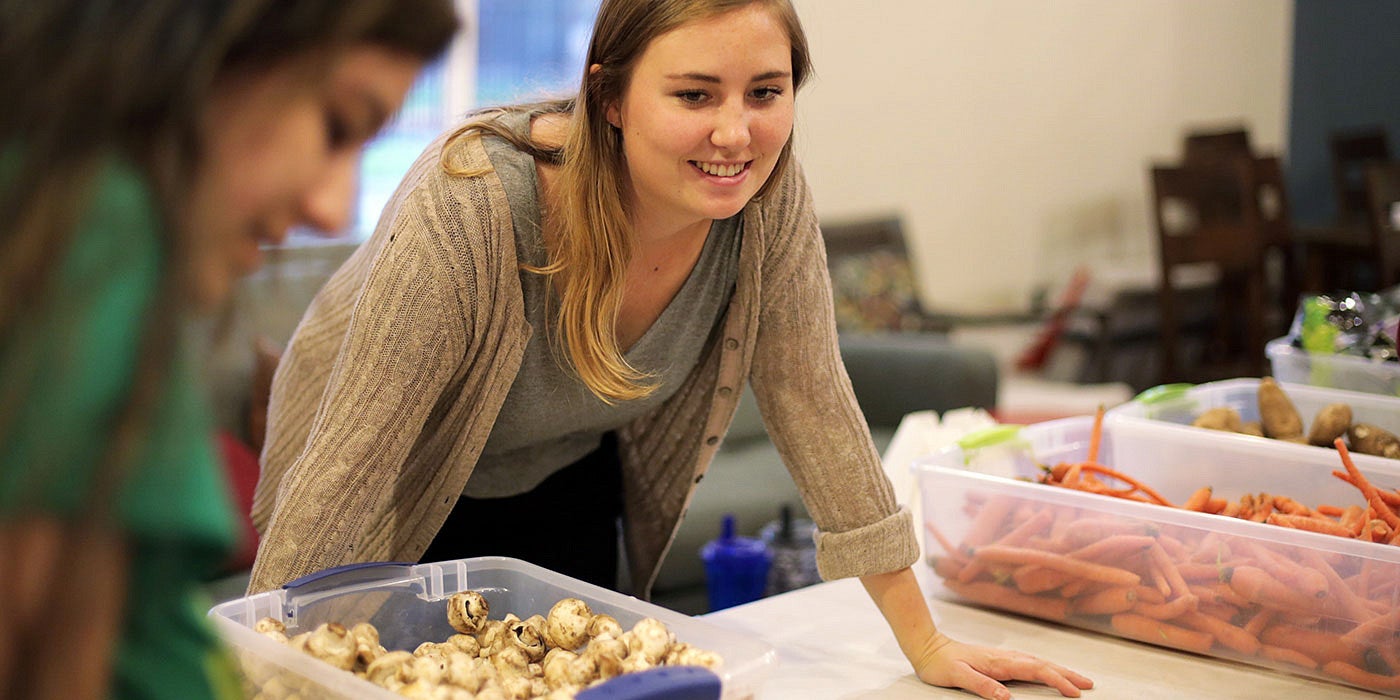
Eating Well
Eating Well
Eating Well
BY ED DORSCH, BA '94, MA '99
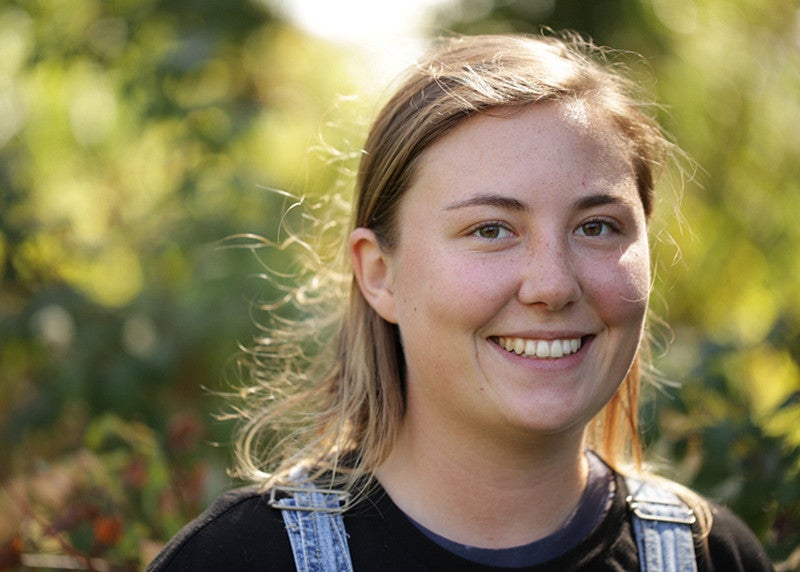

Although the environment was important to her in high school, Kiara became interested in broader food justice issues at the University of Oregon.
“It had always been somewhere on my mind. I became a vegetarian my freshman year of high school and that was my first step into thinking about food in a broader sense—how it impacts the environment and other beings. That was kind of my gateway. And then I realized that this issue isn’t limited to animal welfare. But it expands to the environment and farmworker rights and food justice.”
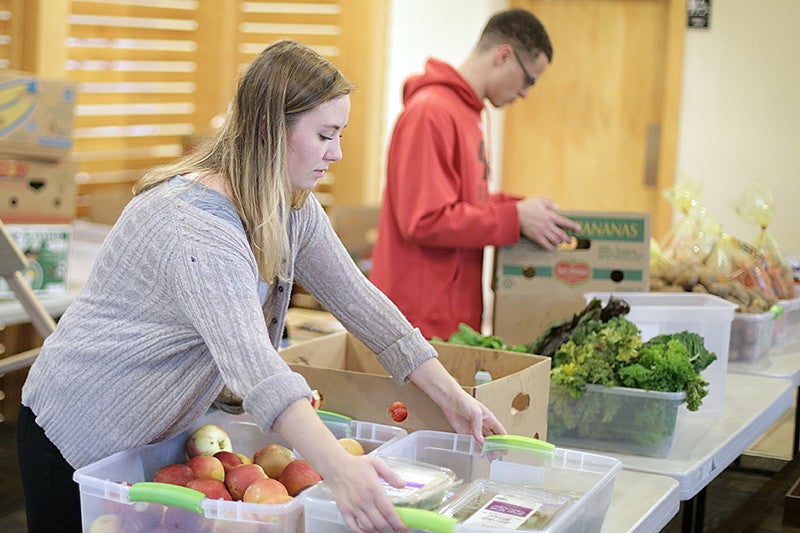
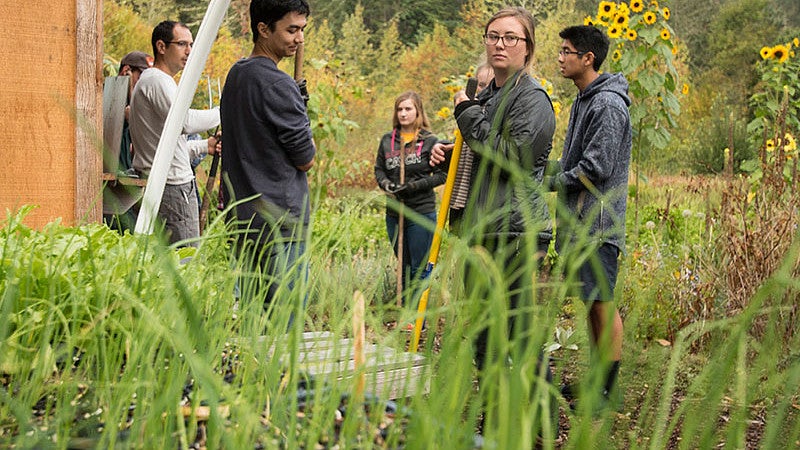
During her freshman year at the UO, Kiara participated in Project Tomato when she joined the Community for Environmental Leaders Academic Residential Community, and later became a coordinator.
“I was volunteering at the Grove, the Student Sustainability Coalition’s community garden. I was talking to this guy who was there and somehow Project Tomato came up and he said ‘they’re hiring.’ I realized that it was the program I had done as a freshman. So I jumped on it right away. I had so much fun, and it put me on a trajectory to all the stuff I’m doing now. I wanted to give that back to incoming freshmen and get them stoked about food issues and their education.”
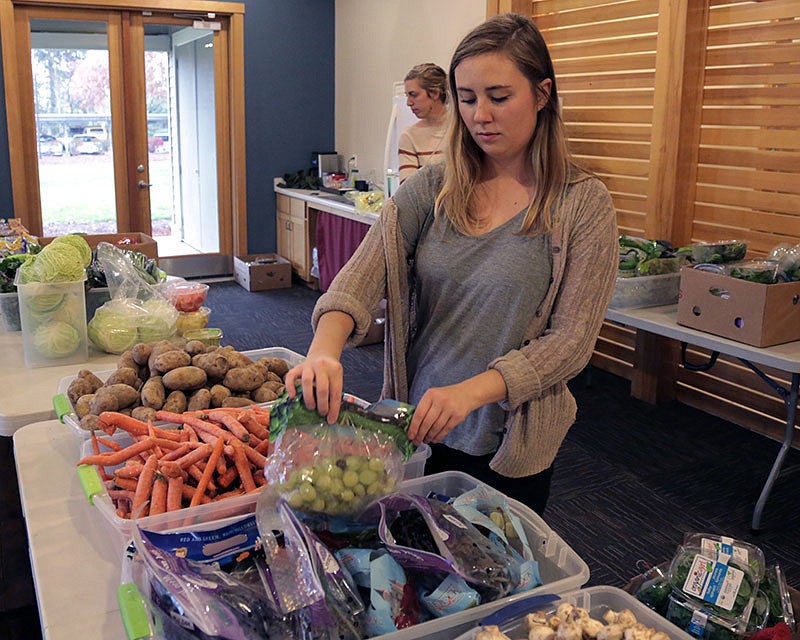

As part of her Planning, Public Policy and Management (PPPM) coursework, Kiara volunteers for Cornerstone Community Housing, helping distribute healthy food and demonstrating ways to prepare it. Her volunteer work with Food for Lane County included researching clients who used the Dining Room, the organization’s innovative take on the traditional soup kitchen.
“I love everything about the PPPM department. I think it’s the coolest. Nonprofit administration was a more vocational degree. I could take any interest I wanted and apply it to a practical field.”
When she’s not helping people out in the community, Kiara is working on issues closer to home. Food security among UO students is the focus of her Clark Honors College thesis, as well as her efforts with a university working group. And she’s working to bring to campus this February an event called FEAST—a program sponsored by the Oregon Food Bank that will help identify problems and solutions to help students.
“I think the community I was introduced to through Project Tomato helped a lot. Both in terms of the students that I met in Community for Environmental Leaders and the local food community. And seeing just how supportive they are of each other. And just working with this really cool group of people making change happen in a really tangible, hands-on way. It was really inspiring to me.”


